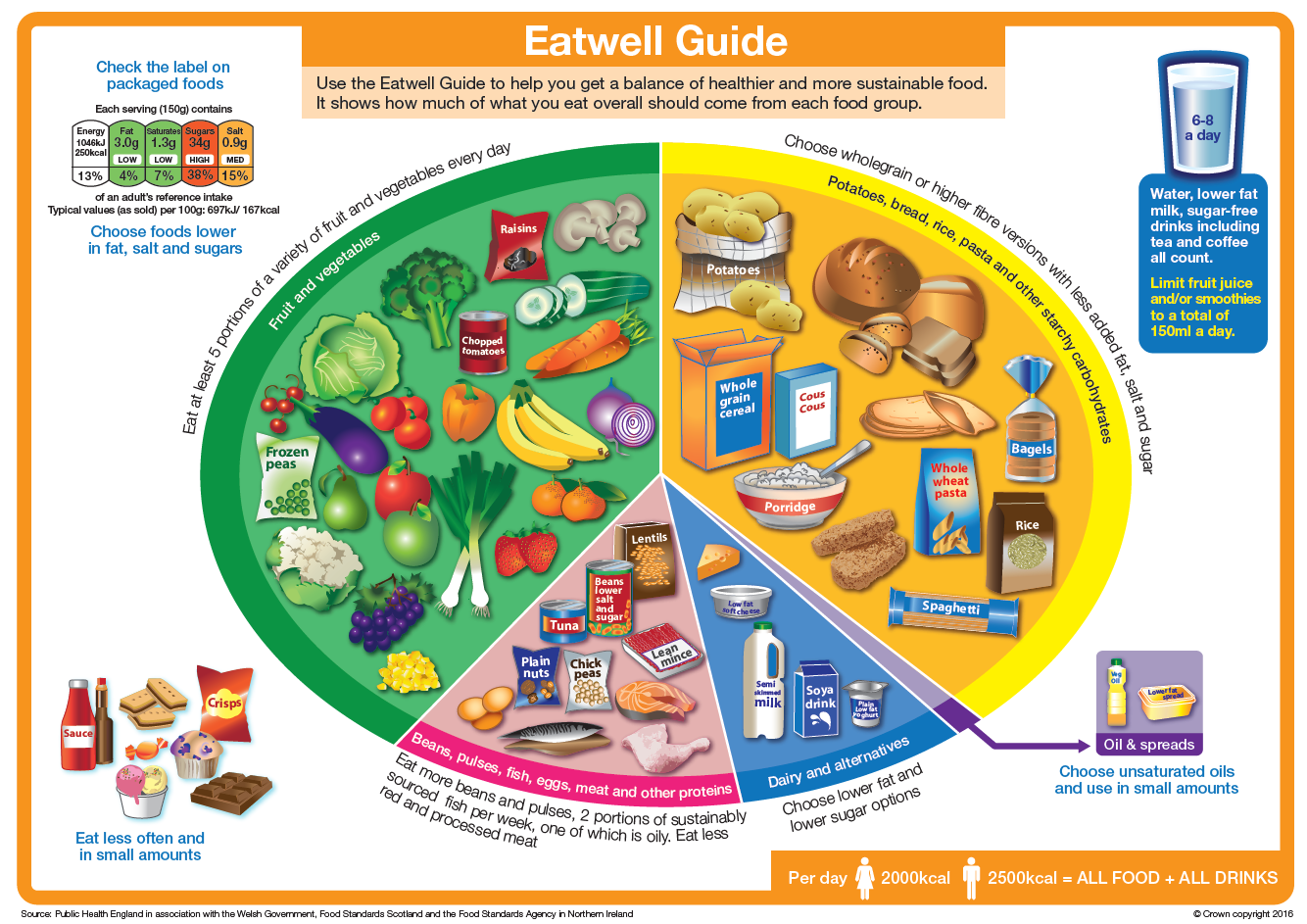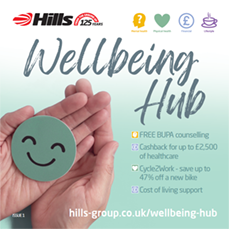Poor diet is now the biggest risk factor for preventable ill health in England according to The Health Foundation.
With that in mind, here are 10 healthy habits you can easily get into to improve your diet and nutrition.
 1. Water with a twist
1. Water with a twist
Keep a jug of water in the fridge – add the juice from one lemon or lime, a couple of slices of cucumber and a few fresh mint leaves for a refreshing twist. Good hydration is important and knowing that you’ve got a zesty drink already made up is a great reminder to keep drinking throughout the day. Aim to finish your jug by the end of the day.
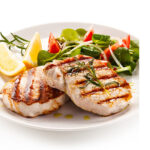 2. Swap the sausages
2. Swap the sausages
A barbecue favourite, but be aware sausages are often high in saturated fat, salt and contain lots of other ‘fillers’ and additives. Instead, try chicken breast marinated in lemon juice and fresh herbs or fresh minute steaks. Vegetable kebabs are also delicious chargrilled on the BBQ, and nothing beats prawns or a fresh fillet of fish.
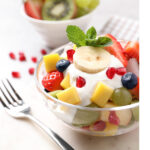 3. Give natural yoghurt a try
3. Give natural yoghurt a try
A good-quality natural yoghurt with live cultures is great for boosting gut health. If you choose an unsweetened variety, you could add a tiny bit of honey or some fresh fruit to give it any sweetness you need.
 4. Swap creamy desserts to fruity desserts
4. Swap creamy desserts to fruity desserts
It’s okay to indulge every now and then, but if you really need to have something sweet after dinner why not try something fruity instead of ice cream? Try frozen fruit blend popsicles, fresh berries with a small dollop of sweetened cream cheese, or chopped fresh fruit with a dollop of natural yoghurt and a drizzle of honey.
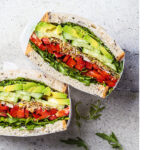 5. Make ‘buffed up’ sandwiches
5. Make ‘buffed up’ sandwiches
A ‘buffed up’ sandwich is one that contains lots of fresh salad, vegetables: grated carrot, rocket, baby spinach, cucumber, tomato, sprouts, red onion, beetroot, etc. This kind of sandwich is much more filling and nutritious than one that just contains ham and cheese or other processed meat or spread.
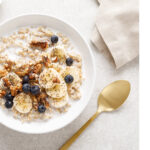 6. Say yes to breakfast
6. Say yes to breakfast
Breakfast has been well established as an important healthy lifestyle habit. Try to prioritise breakfast – if you don’t, you’ll run out of time in the mornings and it won’t happen.
 7. Reduce the booze
7. Reduce the booze
Too much alcohol saps your energy and can deplete important energy-releasing B vitamins, cause headaches and ruin concentration. The NHS recommends no more than 14 units of alcohol a week to avoid alcohol misuse. You could also enjoy zero alcohol alternatives. A unit of alcohol is 8g or 10ml of pure alcohol, equivalent to:
- half a pint of lower to normal-strength lager/beer/cider (ABV 3.6%)
- a single small shot measure (25ml) of spirits (25ml, ABV 40%)
- A small glass (125ml, ABV 12%) of wine contains about 1.5 units of alcohol.
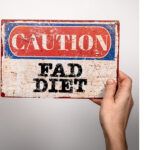 8. Avoid fad diets
8. Avoid fad diets
If you’re looking to lose weight, resist the temptation to follow extreme dieting practices. Follow a program that encourages balanced eating, the development of long-term habits and teaches you how to prepare and buy healthy food.
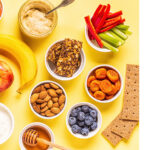
9. Be a good snacker
Snacking can be either extremely helpful or extremely damaging to your weight loss or healthy lifestyle choices. Have something healthy on hand when you need it. Snack on whole foods like fruit, nuts, yoghurt, eggs, tuna, wholegrain crackers, cheese and vegetables.
 10. Five a day
10. Five a day
A balance of fruit and vegetables is the cornerstone of a healthy diet. Aim for a balanced mix of fruit and vegetables each day and avoid being tricked into thinking a lot of fruit juice counts – it doesn’t and can lead to tooth decay and excess sugar intake. If you like fruit juice, limit your intake to one glass a day which can then count as one of your five a day.
Recipes that help healthy eating habits easy:
20 easy ways to get your 5-a-day – Heart Matters magazine – BHF
Additional information on nutrition:
British Nutrition Foundation – Homepage
Public Health England’s Eatwell Guide:
